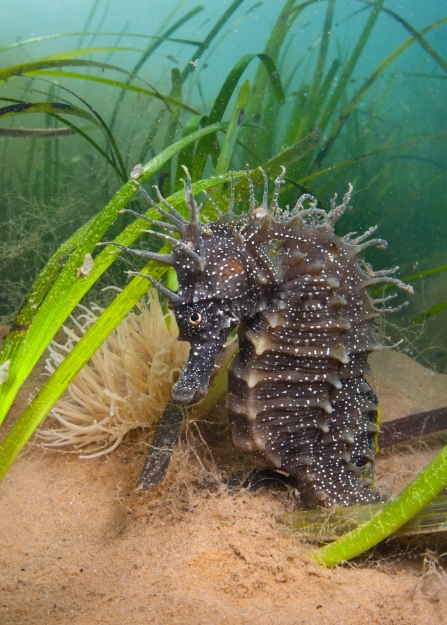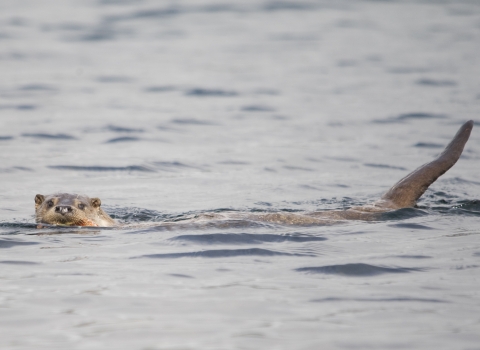The UK is a surprisingly diverse place, it homes over 88,000 species of animals, plants and fungi as well as a variety of rare and important habitats. Despite the UK Government regularly pledging to make important changes to protect and restore nature and this biodiversity, it continues to be degraded across the country and 41% of UK species have seen significant declines since 1970. If this destruction continues at the current rate, our biodiversity and habitats may not be able to recover to a healthy level.
Why nature's recovery matters
Winmarleigh Moss - Jenny Bennion
If this destruction continues at the current rate, our biodiversity and habitats may not be able to recover
But why do we need nature to recover? What’s in it for us?
You may not realise but our habitats have the important ability of capturing and storing carbon (known as carbon sequestration), which in turn controls and stabilises our climate.
Both grasslands and peatlands can store enormous quantities of carbon, 2 billion and 3.2 billion tonnes respectively. Absorption of CO2 also occurs on our coasts and in our oceans, with one hectare of saltmarsh being able to capture two tonnes of carbon a year as well as 10 billion tonnes of carbon being locked away in seabed sediment globally when CO2-absorbing phytoplankton die.
However, all these habitats have suffered from heavy degradation. Arable conversion of grasslands between 1990-2006 released 14 million tonnes of carbon into the atmosphere, and degradation of peatlands releases around 23 million tonnes of carbon per year. Salt marsh in the UK is also being lost at the rate of 100 hectares per year.
We need to protect and restore these incredible habitats, so they continue to absorb CO2 and lock it away. If we restored our natural systems to a healthy level, they could provide 37% of the CO2 mitigation we need by 2030 to meet the Paris Agreement!
Nature also offers us other benefits alongside carbon sequestration. Healthy woodlands, grasslands and peatlands can provide effective flood protection by slowing and storing water. Saltmarshes and other sea habitats like seagrass can protect us from storm surges and coastal erosion, as well as being key nurseries for fish.
Additionally, nature provides us with healthier lives, both physically and mentally. Woodlands and urban trees can significantly reduce air pollution and stabilise air temperature, high levels of which can worsen lung conditions and affect those with heart conditions. Exposure to nature has even been linked to lower chances of cardiovascular disease and diabetes!
It is also well recorded that spending time in nature can benefit our mental health, by reducing stress levels and helping people be more active, which is particularly important in todays trying times.

Spiny seahorse in seagrass by Alexander Mustard/2020VISION
"Sea habitats like seagrass can protect us from storm surges and coastal erosion, as well as being key nurseries for fish."
What solutions do we have to help nature recover?
The need for natures recovery is why the Wildlife Trust has a vision for the solution: A Nature Recovery Network. This is a joined-up system of places important for plants and animals, on land and at sea that will allow wildlife to move from place to place as well as provide them with places to breed and feed. This network will only be effective if it’s treated like our road networks, a complete joined-up whole. Managing our land and sea more effectively will help nature recover, such as introducing more hedgerows to connect habits and implementing Highly Protected Marine Areas.
Projects run by the Wildlife Trust are taking place all over the country to help nature recover. A great example is the project ‘Lancashire Peatland Initiative’ which is led by the Lancashire Wildlife Trust. This project raises awareness about peatlands, secures sustainable funding sources, and produces integrated outcome reports for the Lancashire Peatlands. These important reports map our peat resources and the benefits we will gain from protecting them, such as carbon storage and flood management. They also allow us to prioritise future work for the best possible outcome for our peatlands.
Natures recovery matters for us to have a stable climate, robust land, and sea environments, as well as healthier lives.


